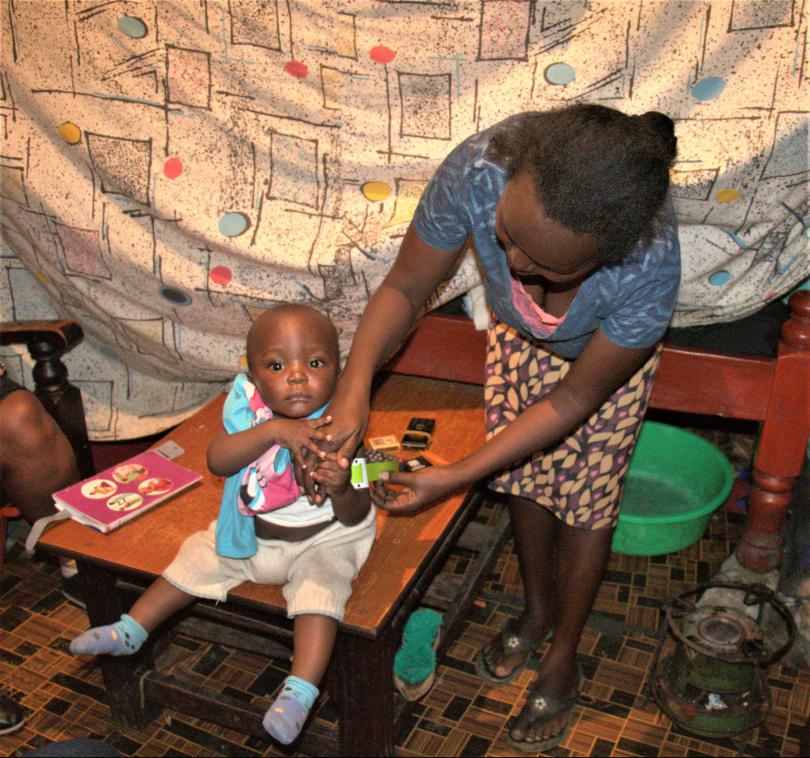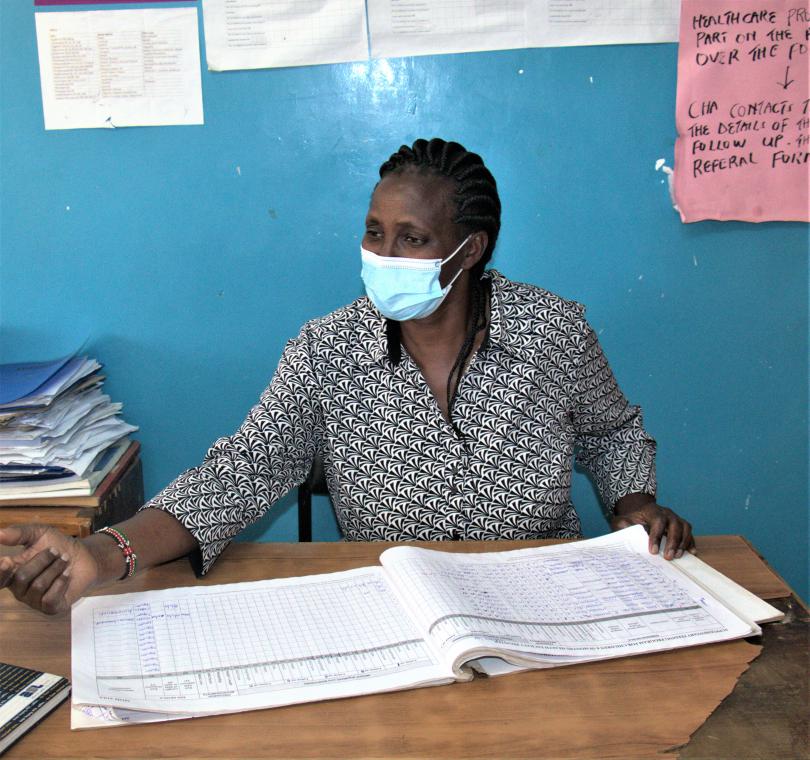Family led MUAC Intervention: Supporting families to screen for malnutrition

By Marion Kwambai
According to Kenya Food Security Steering Group (KFSSG) report of February 2019, Nairobi County was rated third highest county in estimated caseloads for children between 6-59 months who require treatment for Acute Malnutrition. The estimated Severe Acute Malnutrition (SAM) and Moderate Acute Malnutrition (MAM) caseload is 13,799 and 36,675 for children under 5 years respectively.
Family MUAC is a community screening approach which empowers mothers, caregivers and other family members to screen their own children for acute malnutrition by teaching them how to use a simplified color-coded Mid-Upper Arm Circumference (MUAC) tape and checking for oedema. It does not require numeracy or literacy skills.
In July this year, Moses from Mathare Slums in Nairobi was just 7 months old. His health had deteriorated so much he was barely feeding and had lost so much weight. Petronilla Syombua, 27, his mother was helpless and was afraid of taking her baby to a health facility because that would mean exposing them both to COVID-19.
Due to government restrictions to control the spread of the virus, the only reason you would be allowed in a facility was for immunization services.
Distraught, Ms. Syombua then sought advice from a neighbor who then referred her to their area community health volunteer who had already been trained by Save the Children on how to use the family based MUAC tape. Upon screening, Moses was diagnosed with Severe Acute Malnutrition (SAM).
Moses was immediately referred to Huruma Lions Health Facility in Mathare. Mary Wambui, a nutritionist at the facility immediately put him under treatment using ready to use therapeutic food (RUTF).
Ms. Syombua was given 28 sachets of the RUTF to last her one month which she mixes with porridge and feeds Moses twice a day.

“At the health facility, Mary also trained me on proper feeding. I only used to feed Moses tomato soup and ugali (maize meal) but now I include milk, pumpkin, spinach and traditional vegetables in his diet,” she said.
She also has her own MUAC tape distributed by Save the Children to track Moses’s recovery progress after every two weeks.
“A community health volunteer trained me on how to use this MUAC tape. When it shows red and yellow then I know I should take him to a health facility. Green means he is healthy. Since I have my own tape now, it is easy to monitor his progress. Right now my baby is very healthy,” she said.
Margret Mogoba the sub-county Nutrition Officer Mathare, said that the roll out of the Family MUAC program was very timely and convenient to the community because it came at a time when community members were scared of visiting a health facility.
“At the moment, most of the nutrition cases we get at the facility are referral cases from community health volunteers in the community. This has been made possible by the Family MUAC tape. Many children’s lives have been saved here in Mathare,” said Ms. Mogoba.
She also added that Family MUAC has helped debunk the myth that malnutrition is witchcraft, most of the community members were afraid of seeking treatment for their children because of stigma associated with it. But now community health volunteers are demystifying that.

The rationale for teaching mothers, caregivers and family members to measure and classify MUAC is to enhance the detection of acute malnutrition cases at community level and to increase the number of referrals for treatment within community or integrated management of acute malnutrition (CMAM/IMAM) programmes. Involving mothers and caregivers in MUAC screening enables them to develop a better understanding of the signs of malnutrition, be engaged in monitoring their children’s nutrition status and increases the frequency of child screening at community level. Family MUAC places families at the centre of malnutrition screening strategies, acknowledging they are best placed to detect the earliest signs of malnutrition and reinforces their role in protecting and promoting their child’s health.




